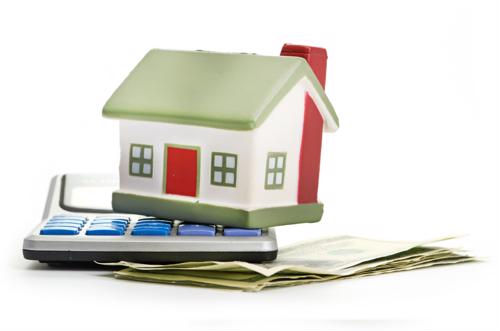
Refinancing your mortgage can net you more favorable terms or help you pay off the home loan quicker. However, while many homeowners ask “How can I refinance my mortgage?” an equally valuable question to ask is “When is the right time to refinance my home mortgage?” Deciding on when to refinance is crucial to ensuring you maximize your benefit. The timing aspect of refinancing is important to consider, yet not always taken into account.
To help in your decision-making or future planning, here are some different scenarios when refinancing your mortgage makes most sense.
When interest rates are low
The interest rate your mortgage carries is a reflection of different factors, like your credit score. One variable in that equation is the overall market for interest rates. Banks and other lending institutions use a prime rate as the base for your rate, and generally add on a couple percentage points for their own revenue-making needs. Many fixed-interest rate home loans are tied to the federal funds rate, which the Federal Reserve controls. If that rate is held lower, consumers are more likely to be quoted lower borrowing rates.
Currently, the U.S. is in the midst of a streak of low interest rates. After the Great Recession, the federal funds rate was lowered to near zero in order to stimulate the economy and make borrowing cheaper for businesses and consumers. While those rates have risen incrementally since, they are still comparatively well below historic levels. Refinancing when rates are low can help you reduce your interest costs. You may be able to get a decreased rate that can offer further savings.
When you want to pay off the home loan quicker
One of the most popular mortgage options on the market is the 30-year mortgage. While this structure generally allows for a steady monthly payment, a lot of life changes can occur in 30 years. Perhaps you’ve added to your family and need a bigger residence, or maybe you’re close to retirement and want to downsize, but the remaining years on your mortgage are a burden. Refinancing can allow you to shorter the term of your mortgage so you can pay off the loan quicker, which may be advantageous to you.
It’s worth noting, however, that you’ll have to calculate whether this makes financial sense to you or not. Refinancing is taking out a new mortgage with new terms to pay for your existing home loan. Monthly payments early in the mortgage’s life are usually heavy toward interest, which may increase your overall interest costs in the long term if the timing isn’t right.
When you have built up equity in your home
You start building equity with every monthly payment. The equity in your home is equal to the selling price you could get minus the mortgage amount you still owe. As you get further into the life of the home loan and those monthly payments start to take down the principle balance, you’ll start accruing equity at a quicker pace. Also, if you’re in a hot housing market, you might get a boost from local price appreciation. The more equity you build, the better deal you can get through a refinance.
A cash-out refinance in particular allows you to tap that equity for your own financial needs. With the proceeds, you could reinvest the money in a home renovation or upgrade project that improves the livability of the home. This can pay off if you sell the home and the project increases the home’s value, giving you the chance to recoup your investment. You can also use the cash to pay down high-interest debts, start a college savings fund or otherwise meet financial needs.
While these are some of the best times for refinancing a mortgage, there are also times that make refinancing less optimal. When it doesn’t make sense to refinance is when:
- Your credit hasn’t improved since taking out the initial mortgage.
- The long-term costs outweigh short-term savings.
- You can’t afford the closing costs.
That last point is important to note. Refinancing is just like any other mortgage process: There will be closing costs and different fees for origination or credit checks along the way. It’s important you balance this fact with the net benefit you’re expected to gain from refinancing. Want to learn more about refinancing your mortgage or start the process? Contact The Federal Savings Bank today.
This information is intended for educational purposes only. Products and interest rates subject to change without notice. Loan products are subject to credit approval and include terms and conditions, fees and other costs. Terms and conditions may apply. Property insurance is required on all loans secured by property. VA loan products are subject to VA eligibility requirements. Adjustable Rate Mortgage (ARM) interest rates and monthly payment are subject to adjustment. Upon submission of a full application, a mortgage banker will review and provide you with the terms, conditions, disclosures, and additional details on the interest rates that apply to you individual situation.


